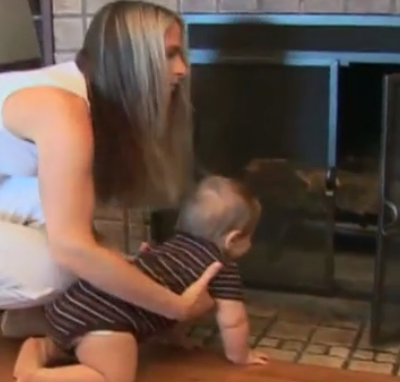How To Enhance Your Child’s Social Intelligence Through Emotion Coaching

Parenthood is an endless series of small events, periodic conflicts, and sudden crises that call for a response. We would like to believe that only a disturbed parent responds in a way that is damaging to a child. Unfortunately, even parents who are loving and well meaning also blame, shame, accuse, ridicule, threaten, bribe, label, punish, preach and moralize. -Haim Ginott, Between Parent and Child
Most parents want their kids to be ‘street smart’ or socially intelligent. But how do we go about enhancing our children’s emotional literacy and E.Q? Being an emotion coach for your child is a good start! It will help her learn to recognize, express, and regulate her emotions. You’ll be helping her with language development as well. Just think: fewer outbursts because your child will have the words to express her feelings rather than having to act out. Emotion coaching promotes the deep connection between you and your child, strengthening your relationship and regular communication. With your guidance, your child learns valuable social skills and how to attend to the emotional cues of others. He’ll learn to make new friends and will play well with others. Emotion coaching helps your child build a healthy “coat of armor” that protects her in times of adversity—she’ll also recover more quickly from negative feelings and experiences.
Emotion coaching helps your child learn patience and increases her ability to delay gratification and manage impulsive behaviors. Children who receive emotion coaching have better concentration at school and master learning tasks more easily. Through emotion coaching, your child learns the value of connection, respect, and communication in relationships, so as an adult he’ll be able to understand and support the emotions of others. With emotion coaching, you help your child become a compassionate parent when his time comes.
The key to effective emotion coaching is the strength of the relationship between you and your child. It is the context for all your interactions… In various posts and chapters I have written, I discuss the four common obstacles that involve parenting that ‘s focused only on shaping behavior while neglecting or even harming the developing parent-child relationship. Every interaction with your child provides you with an opportunity to either to disconnect or to connect, to be overpowering or to share the power, to have all the responsibility or to teach responsibility. Before responding to your child, it’s a good idea to ask yourself, Will what I’m about to do help me connect with him and prepare him to make good choices both in the present and in the future?
Children need guidance and support during their most challenging moments. When children get worked up, they can be very frustrating to deal with. However, if we react impulsively and become aggressive, then we put our relationship at risk. It takes only a few extra minutes to figure out what a child really needs. Planting the right seed—in other words, preparing your child in advance about what you expect—helps your child integrate and regulate certain emotions before they occur. And when your child has an emotional upheaval, it’s helpful to acknowledge her emotional state. Ignoring it or minimizing it will only make her feel frustrated and misunderstood. Identifying and acknowledging feelings from your child’s behavior can be trying, because you’ll have your own reactions to the drama. But ignoring emotions only teaches children that self-expression is not important—which we know is not the case.
What Children Really Value Is Positive Time Spent with You!
A child who is treated like a mundane chore—fed, clothed, and routinely taken care of—doesn’t necessarily feel loved. What makes children feel truly valued and worthwhile is one-on-one uninterrupted time with a parent. The average time a parent spends in conversation per day with his or her child is twelve minutes, and most of the child’s interactions involve negative comments. This has to be changed. It’s important to make efforts to spend more quality time with your children and to give them positive messages. How do you make time for your kids? I’d love to hear about it!



